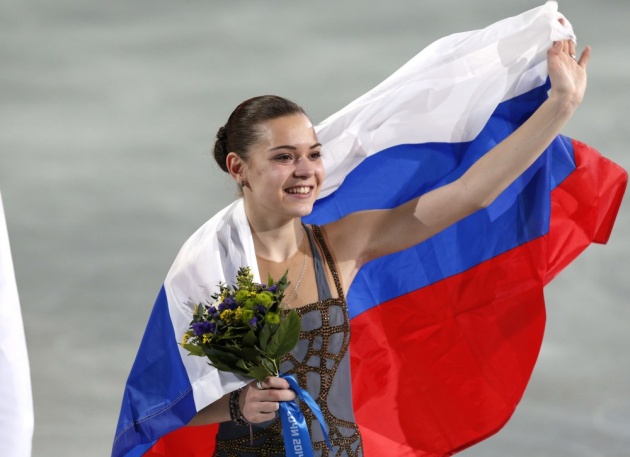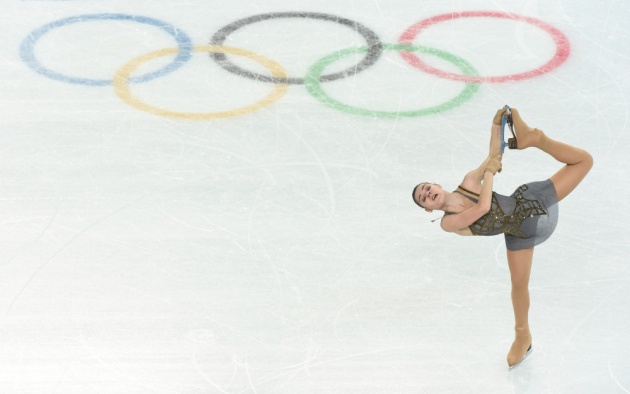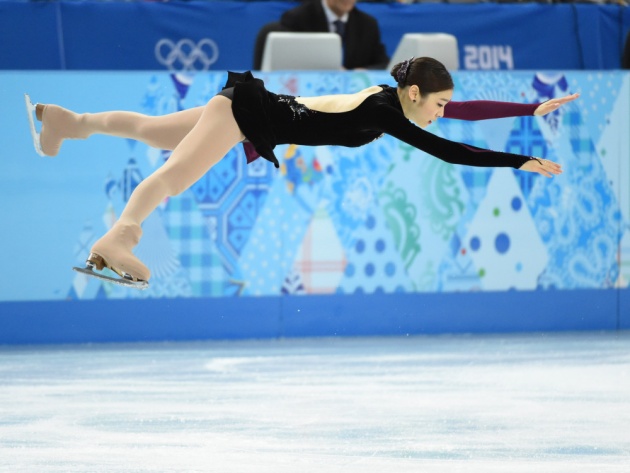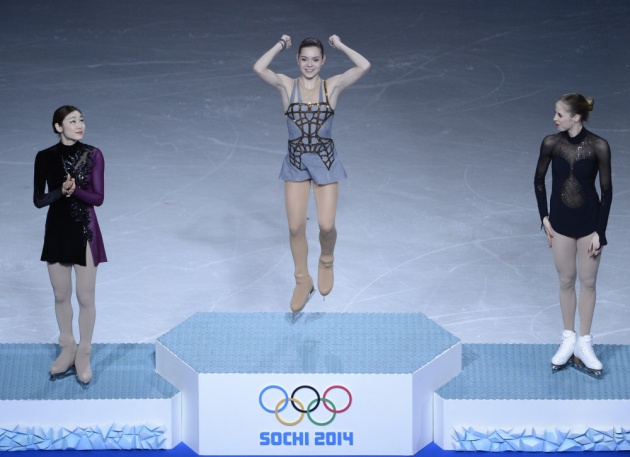
(USA TODAY Sports Images)
It took 15 days, but the Sochi Olympics finally stirred up some controversy. But just because this feels like an old fashioned figure skating theft, doesn’t mean that’s necessarily the case.
Reigning Olympic champion Yuna Kim skated two flawless routines in her short and free program, but lost on the judges scorecard to 17-year-old Adeline Sotnikova, who also skated two nearly-flawless routines and, oh yeah, just happens to hail from Russia.
A Russian scoring an upset win in Russia was bound to send up distress signals no matter the circumstances, but especially when the victory is over Kim, the closest thing figure skating has to a queen.
It’s debatable, but not a robbery. Sotnikova skated well enough to win gold. She had a carefully constructed program with seven triples, five of which were in a combo. Kim had six and three, respectively. Thus, Sotnikova was going in with a higher total and made more margin for error, which she took advantage of with a minor hop after one exchange.

That won’t be good enough for the Kim supporters. This is figure skating, a sport that has been marred by countless judging controversies, including the infamous 2002 Salt Lake City scandal. The judges are largely anonymous. Their scores are hidden to the public. The situation is always ripe for allegations of corruption or favoritism. In making the system more objective, the sport has invited more skepticism. Why should fans believe something they can’t see?
That’s why the decision feels like a gift, as if the judges were caught up in the atmosphere created by a frenzied Russian crowd cheering on their favorite. And who could blame the judges? Listening to the crowd roar everytime Sotnikova landed a combination made her feel like the best skater. The crowd cheered Kim’s program, but it was muted, as if the crowd was sitting on its hands, waiting for the favorite to fail so the native daughter could win gold. It’s hard to be arbitrary when there’s so much emotion at play.

NBCSN’s figure skating announcers, Johnny Weir and Tara Lipinski, didn’t offer much criticism when Kim’s score was announced and Sotnikova was revealed to be the winner. But after Sotnikova’s scores came out earlier in the program, Weir alluded to a potential home-ice advantage.
“That is a big, big number. You have to think being in Russia in front of a Russian audience has definitely helped. She skated well, I don’t know if she was eight points ahead of [bronze medalist] Carolina Kostner.”
But Weir backtracked later, saying he agreed with the podium “100%.” Lipinski said Sotnikova deserved to win because she skated with the most heart. Or did she skate with the most fan support, which gave the impression she had the most heart?

With Weir and Lipinski playing it safe in the end, that left the outrage for Twitter and, perhaps, for Scott Hamilton, when he calls the action during NBC’s primetime show later.
Russians would have said Sotnikova was robbed if she had lost. Koreans will say the same thing happened to their national hero. Someone has to win and when the decision is left up to the judges, the runner-up is always going to have an argument. That’s the way it goes in Olympic figure skating.
Source: USA TODAY
Annex News - Sport



